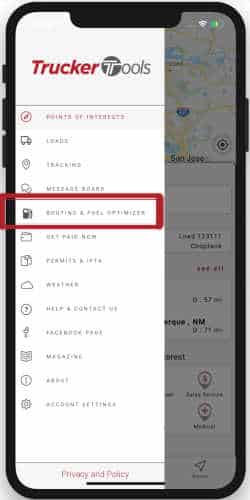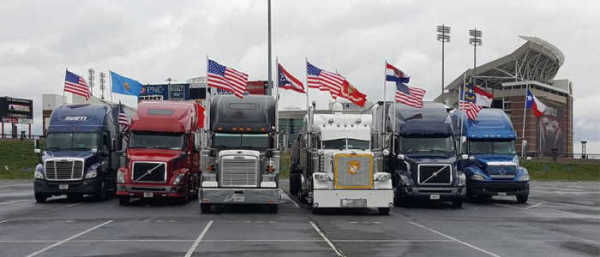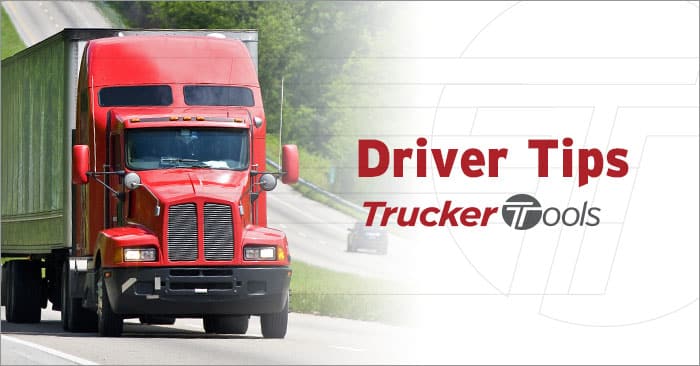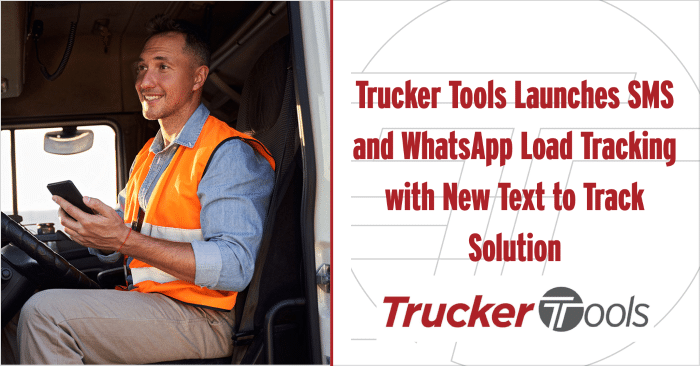What a year it’s been — between the pandemic, shutdowns and unpredictable supply and demand, it’s been a real roller coaster. Jovanic Bontemps, the owner of Long Island-based FR8UP Logistics, recently sat down with us to talk about what it’s been like to launch a new trucking business this year. As a newcomer to the industry, Jovanic shared with us what he’s learned in getting his trucking company up and running and what advice he has for you if you are thinking of starting your own carrier business. Check out Jovanic’s great tips for launching your own trucking biz.

1. Research, Research, Research
“I spent six or seven months researching the trucking business,” said Jovanic. “I talked to friends who are drivers to learn more about trucking. I was doing some IT consulting for UPS at the time and took the opportunity to pick the brains of UPS drivers on a daily basis. I ended up getting my own MC number and DOT authority myself so that I could fully understand all the regulations and educate myself on what was needed. It was a long process, but I learned a lot by researching and doing everything myself.”
“I spent six or seven months researching the trucking business,” said Jovanic. “I talked to friends who are drivers to learn more about trucking. I was doing some IT consulting for UPS at the time and took the opportunity to pick the brains of UPS drivers on a daily basis. I ended up getting my own MC number and DOT authority myself so that I could fully understand all the regulations and educate myself on what was needed. It was a long process, but I learned a lot by researching and doing everything myself.”
2. Keep Overhead As Low As Possible
“If I could go back and do things differently, I maybe would have taken out a small business loan to partially finance my truck and bought a dry van trailer, instead,” advised Jovanic. “If you have cash to put down a large down payment on your truck and trailer to make your payment as low as possible, do that.”
Jovanic said that it’s important to consider other recurring costs, such as insurance. The cost of insurance varies greatly from state to state, so much so that Jovanic is thinking of relocating his business to Georgia to reduce overhead. The move could potentially save his company thousands of dollars in premiums alone.

3. Make Sure You Have Enough Operating Capital
When you’re starting a business, there are lots of initial start-up expenses that can add up quickly. Jovanic suggests that you make sure you have the funds set aside to cover your operating expenses, since it may take time to get income rolling in.
“I suggest that you purchase a truck within a price range that still allows you to still have enough operating capital for at least four to six months,” offered Jovanic. “Until you get into the industry, you can’t really understand how expensive fuel is.”
He also points out that some bigger brokers and shippers may not let you move their loads if your MC number is new. Some have a 90 day waiting period for carriers with new MC numbers, which also impacts your ability to bring in revenue.
4. Understand How HOS Impacts Your Revenue
“Hours of service restrictions affect how many miles you can cover each week,” Jovanic said. “Drivers can only drive 11 hours/day at approximately 60 mph. That’s at best 660 miles/day. Even that number doesn’t take into account the time it takes to load and unload the trailer. There are so many different variables to consider. Your systems have to really be in place.”
“Hours of service restrictions affect how many miles you can cover each week,” Jovanic said. “Drivers can only drive 11 hours/day at approximately 60 mph. That’s at best 660 miles/day. Even that number doesn’t take into account the time it takes to load and unload the trailer. There are so many different variables to consider. Your systems have to really be in place.”
When we spoke with Jovanic, FR8UP Logistics was doing power only load-out trailers. He said that using load-out trailers further restricts how many miles your driver(s) can realistically run each week.
5. Be Realistic With Your Expectations — and Expect the Unexpected
“We are doing very well, especially considering that we’re dealing with picking up and dropping off trailers,” Jovanic said. “We’re making more than 100 percent profits on our loads and that’s with factoring in our insurance costs, which are about $95/day. We definitely have endured a couple of setbacks with truck repairs and changing drivers. That was definitely unexpected.”

6. Find the Right Drivers
“Of course, driver experience is number one,” advises Jovanic. “You want to take into consideration driver experience, but you also want to find drivers who are a good fit for your business. We hired a new driver and that increased our insurance premium. But, when we did a cost/benefit analysis, we found that her flexibility and willingness to drive the full 11 hours out of a 14 hour shift meant she is going to pay for that additional insurance premium in just four months. Our driver is patient and understanding of our learning curve, as well, which is important.”
7. You Have To Spend Money To Make Money
“Nothing ventured, nothing gained,” says Jovanic. “I’ve definitely learned that you have to spend money to make money. This is an expensive business and I came into it knowing that we’re not going to get rich, sustain ourselves or pay our bills off with one truck. Ultimately, the idea is to scale and open ourselves up to new revenue and more contracts by having a fleet instead of one truck.”
For more of our conversation with Jovanic, read The Road Less Traveled: Meet Industry Newcomer Jovanic Bontemps, Owner of FR8UP Logistics. To download Trucker Tools’ free driver app, which Jovanic uses on the daily, visit https://www.truckertools.com/carriers/.






